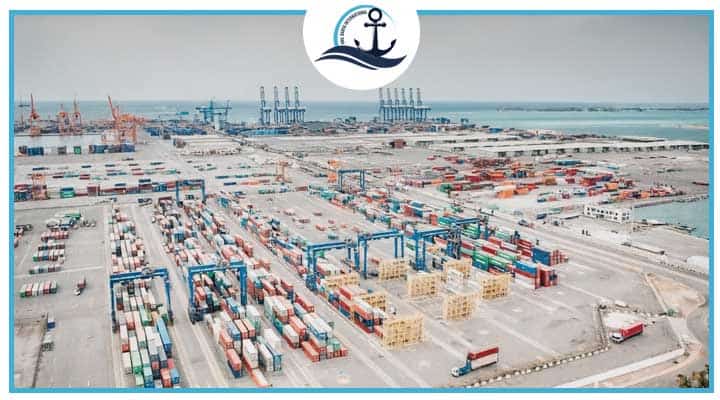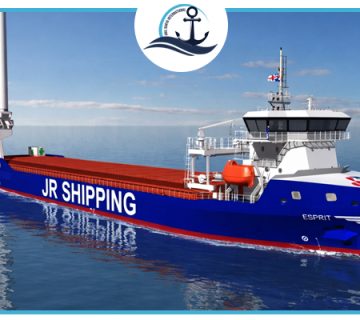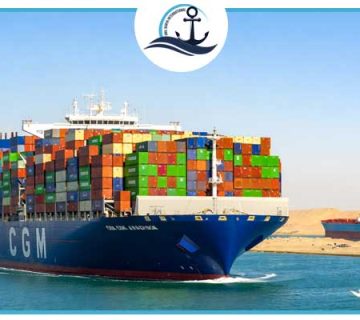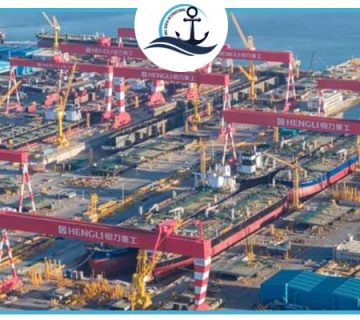|
Getting your Trinity Audio player ready...
|
CMA CGM plots expansion in Saudi Arabia with $450m Jeddah terminal JV
French shipping and logistics powerhouse CMA CGM has unveiled plans to expand its presence in Saudi Arabia through a proposed $450 million joint venture with Red Sea Gateway Terminal (RSGT) to develop Terminal 4 at Jeddah Islamic Port.
The move reinforces the group’s ambition to widen its terminal network in the Middle East and enhance regional sea freight capacity along one of the world’s busiest maritime corridors.
The agreement — signed by CMA Terminals during the Future Investment Initiative (FII9) in Riyadh — outlines plans for a 2.6 million TEU facility that will operate independently, adjacent to RSGT’s existing infrastructure.
Built under a sub-concession within RSGT’s long-term partnership with the Saudi Ports Authority (Mawani), the new terminal forms part of an expansion clause contained in RSGT’s 2020 concession, allowing for additional throughput at the Kingdom’s primary Red Sea gateway.
Boosting Capacity, Technology, and Reliability
RSGT Group CEO Jens Floe said the project embodies a shared commitment to expanding capacity, reliability, and technology integration at Jeddah Islamic Port.
“By bringing CMA CGM to consolidate their volumes on Terminal 4, we can accelerate upgrades and service enhancements while maintaining high operational standards,” Floe stated.
The development is expected to introduce next-generation handling equipment, automation systems, and digital tracking platforms to support faster, cleaner, and more efficient cargo processing — aligning with global sustainability targets for sea freight logistics.
Aligned with Saudi Vision 2030
CMA CGM Chairman and CEO Rodolphe Saadé described the agreement as a “new step in the development of Jeddah Islamic Port” and a direct contribution to Saudi Arabia’s Vision 2030.
“Combining CMA CGM’s global network with RSGT’s local expertise will transform Jeddah into a key logistics gateway on the Red Sea,” Saadé said.
The initiative comes as Saudi Arabia accelerates investment in port modernization and maritime infrastructure to position itself as a logistics hub connecting Europe, Asia, and Africa.
Jeddah’s strategic location makes it central to regional transshipment and long-haul sea freight routes, linking the Suez Canal with Gulf and East African markets.
A New Regional Transshipment Powerhouse
The proposed Terminal 4 will be designed to handle the world’s largest containerships, featuring deep-draft berths and automated cranes capable of supporting vessels exceeding 24,000 TEU.
When completed, the terminal will boost Jeddah’s overall capacity beyond 9 million TEU annually, strengthening its role as a Red Sea transshipment hub and improving operational resilience across the region.
The project also highlights CMA CGM’s long-term investment strategy in the Middle East, complementing its terminal assets in Abu Dhabi, Beirut, and the Indian Ocean.
Industry analysts note that the collaboration reflects a growing trend among global shipping lines to secure vertical integration across ports, logistics, and sea freight operations, ensuring more stable service networks and cost control.
Global Sea Freight Implications
For global sea freight markets, the new Jeddah terminal could enhance capacity and scheduling flexibility along the Red Sea route — a vital corridor for East-West trade.
By providing an additional hub for container transshipment, it is expected to reduce congestion, shorten lead times, and create alternative routing options for carriers navigating between the Mediterranean and Indian Ocean.
The partnership also aligns with broader industry efforts to promote green port operations. Both CMA CGM and RSGT have committed to exploring low-carbon fuels, shore power integration, and energy-efficient infrastructure to support sustainable maritime logistics.
Conclusion: Strengthening Red Sea Connectivity
CMA CGM’s planned joint venture with RSGT marks another milestone in the evolution of Saudi Arabia’s maritime sector and underscores the Kingdom’s rising influence in global logistics.
With its modernized terminals, strategic partnerships, and sustainability focus, Jeddah Islamic Port is set to become a cornerstone of the region’s sea freight network, connecting continents and driving the future of international trade.




